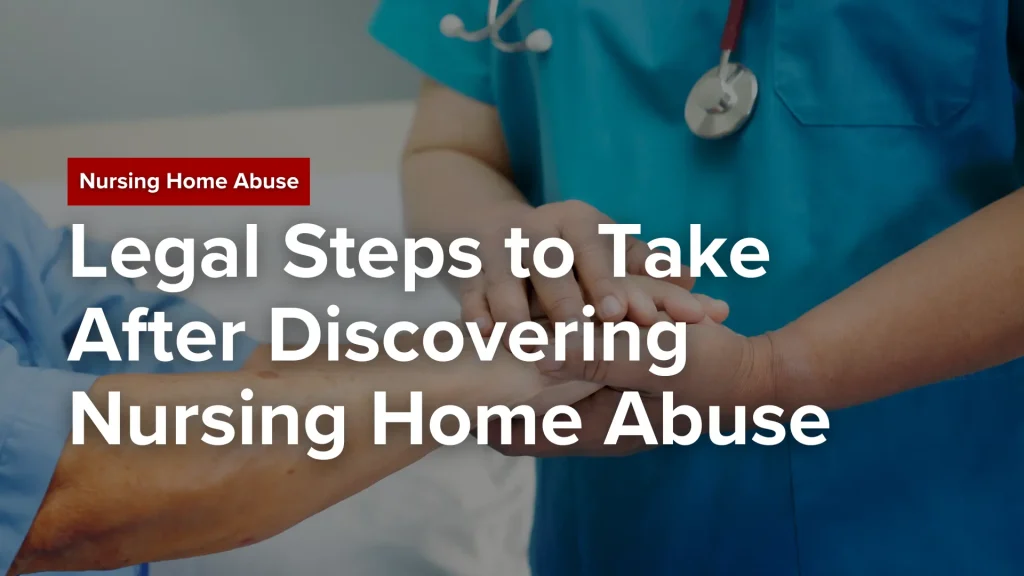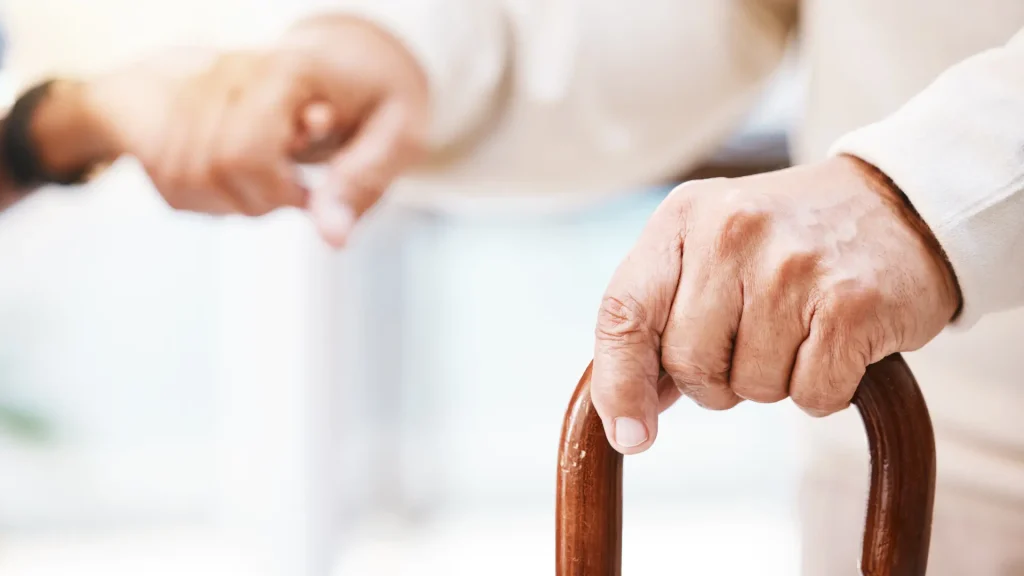
Discovering signs of abuse in a nursing home hits hard. You likely feel a mix of heartbreak and anger, especially when you trusted a facility to care for someone you love. Sadly, these situations happen more often than many people think. If you’ve found yourself dealing with this, know that you’re not alone and there are clear legal steps after nursing home abuse discovery—from reporting the incident to the proper authorities to seeking legal guidance to protect your loved one’s rights and well-being.
Step-by-Step Actions After Discovering Abuse
If you suspect that your loved one is a victim of nursing home abuse, you need to do the following:
Recognize the Warning Signs
It starts with noticing something that isn’t right. Some signs of mistreatment in care homes include:
- Unexplained bruises, cuts, or broken bones
- Emotional changes like fear, confusion, or withdrawal
- Sudden weight loss or signs of poor hygiene
- Missing money, credit card charges, or unusual banking activity
If something feels off, trust your gut. Many cases begin with a family member spotting the warning signs.
Start Documenting Everything
Begin gathering information as soon as possible. This can include:
- Taking photos of injuries or unsafe conditions
- Writing down dates, times, and names of staff or witnesses
- Saving any medical records, bills, or communication with the facility
This step will help later if you decide to file a nursing home abuse report or take legal action.
Talk with Your Loved One
If they are able and willing to speak, ask them gently what happened. Keep in mind that some older adults may be scared or confused. Don’t pressure them. Just listen, write down what they say, and understand that reporting nursing home abuse often begins with a simple, compassionate conversation.
Call a Nursing Home Abuse Lawyer
Before you alert the facility, talk to a lawyer. They’ll listen to your situation and advise whether it’s best to address the issue with the facility or gather evidence first and report the facility. They can also advise whether you should move your loved one immediately.
Call Authorities if the Situation Is Urgent
If you think your loved one is in danger, don’t wait. Call 911, Adult Protective Services, or your local police department. Fast action may be needed to prevent further harm. This step is often part of the emergency removal of elder abuse process.
What to Expect After Reporting Abuse
Once you report nursing home abuse, state or local agencies may start an investigation. This could include inspector visits, interviews with staff and residents, and a medical or staffing records review.
What Happens If They Find the Facility at Fault
If the investigation finds that the home failed to provide proper care, it can face fines, penalties, or even closure. They might also be forced to make changes to prevent future problems.
The Facility May React in Different Ways
Some nursing homes take abuse claims seriously and try to make things right. Others get defensive and try to protect their image. If you run into roadblocks or cover-ups, like denied access to records or pushback from staff, you need legal help.
Long-Term Steps to Protect Your Loved One
There are a few things you can do to protect your loved one if they are being abused in a nursing home facility here in the Chicago area.
Move Them If You Can
If possible, start by moving the resident to another care facility. Your loved one deserves to feel safe and respected. Remember that this can take time and planning, especially if space is limited at other homes.
Ask for Ongoing Documentation
Request regular updates from the facility. Ask to see reports, care plans, and any changes made after your complaint. This ensures continued accountability and allows you to track your loved one’s recovery.
Stay Involved
Visit often and watch for new signs of mistreatment. If you can’t be there regularly, consider asking other family members to check in or hiring a private caregiver.
When to Contact a Nursing Home Abuse Attorney
Many families find it hard to deal with facilities or insurance companies alone. An attorney can collect evidence, handle paperwork, and take the pressure of pursuing a case off your shoulders. In most states, you have a limited time to file a claim. If you miss the statutory deadline, you may lose the chance to seek justice.
For this reason, you mustn’t delay if you’re considering taking legal action. From helping you document nursing home neglect to filing complaints with the state, a lawyer can walk you through every stage. They will also manage conversations with insurers and facility attorneys.
Types of Compensation That May Be Available
A lawsuit related to nursing home abuse can help your family recover compensation for:
- Medical bills for any treatment your loved one needs as a result of their abuse
- Emotional trauma and physical pain
- Relocation costs if you had to move your loved one to a safer place
- Therapy and counseling for both the resident and family members
Common Defenses Nursing Homes Use and How to Counter Them

Nursing homes often defend themselves by denying abuse altogether, by claiming the injuries were caused by falls, or by insisting that the resident was confused. Strong documentation, such as photos, medical records, and witness accounts, can help disprove this. Another common excuse is that the resident was harmed. However, this claim usually falls apart when the resident has physical or cognitive limitations.
Some facilities may even say they don’t know what happened, or records may go missing. This is why keeping detailed notes and saving evidence is so important. Being prepared with facts can make it much harder for a facility to avoid accountability when serious harm has occurred.
Please read more about nursing home negligence on medical records here: Proving Home Negligence Through Medical Records.
Speak with a Chicago Nursing Home Abuse Attorney Today
If you’re worried that someone you love is being harmed in a nursing home, take it seriously. Look for signs of abuse, take notes, and start the reporting process. Then call Karlin, Fleisher & Falkenberg, LLC at 312-346-8620.
Our team at Chicago nursing home abuse attorney can help you with every step, from filing a nursing home abuse report to dealing with the nursing facility investigation process and beyond. Whether it’s contacting a long-term care ombudsman, handling the elder abuse state agency report, or helping you with the follow-up on the elder abuse report, we’re ready to stand by your side. You don’t have to carry this alone. Call now to get started with a consultation and let us help protect your loved one and hold those responsible accountable.
